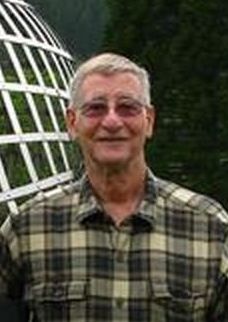Richard Palais
| Naissance | |
|---|---|
| Nationalité | |
| Formation | |
| Activités | |
| Conjoint |
| A travaillé pour | |
|---|---|
| Membre de | |
| Directeurs de thèse | |
| Distinction |
Richard Sheldon Palais (né le 22 mai 1931 à Lynn, Massachusetts ) est un mathématicien américain qui travaille en géométrie différentielle et analyse globale.
Biographie
[modifier | modifier le code]
de Palais étudie à l'université Harvard, où obtient son baccalauréat en 1952, sa maîtrise en 1954 et son Ph. D. en 1956 sous la direction de Andrew M. Gleason et George Mackey[1] (titre de la thèse : « A Global Formulation of the Lie Theory of Transformation Groups », publiée dans les Memoir of the American Mathematical Society en 1957). De 1956 à 1958, il est instructeur à l'université de Chicago ; de 1958 à 1960 il est chercheur à l'Institute for Advanced Study (ainsi qu'en 1963/64, 1968/69, 1974/75).
À partir de 1960, il est en poste à l'université Brandeis d'abord comme professeur assistant, puis en 1962 comme professeur associé et à partir de 1965 en tant que professeur. De 1966 à 1968, il est président du département de mathématiques. Il est resté à Brandeis jusqu'à sa retraite en 2003.
De 1976 à 1978, il est professeur invité à l'université de Californie à Santa Cruz et professeur invité en 1981/82 au Institut Max-Planck de mathématiques de Bonn. En 1984/85, il est membre du Mathematical Sciences Research Institute de Berkeley et professeur invité en 1987 au Nankai Institute of Mathematics de Tianjin. Depuis 2004, il est professeur adjoint à l'université de Californie à Irvine, où il développe un logiciel de visualisation des mathématiques.
Richard Palais travaille en géométrie différentielle, théorie des groupes de transformation compacts et différentiables, la géométrie des sous-variétés, la théorie de Morse, l'analyse globale non linéaire ; il a également travaillé en théorie des solitons et en visualisation des mathématiques. Il est connu pour le « principe de criticalité symétrique », le théorème de Mostow-Palais (en), le théorème de Lie-Palais (en), le lemme de Morse-Palais (en) Morse–Palais lemma, et la condition de Palais-Smale.
Il est marié avec la mathématicienne Chuu-Lian Terng, professeure à la Northeastern University et maintenant également à Irvine.
Distinctions
[modifier | modifier le code]De 1965 à 1967, Richard Palais était Sloan Research Fellow. En 1970, il est conférencier invité au congrès international des mathématiciens de Nice (Banach manifolds of fiber bundle sections). De 1971 à 1978, il a été administrateur de l'American Mathematical Society. De 1965 à 1982, il a été rédacteur en chef du Journal of Differential Geometry et de 1966 à 1969 des Transactions de l'American Mathematical Society. En 1979, il a été cofondateur et président du groupe d'utilisateurs. Il est membre de l'American Mathematical Society[2]. En 2010 il est lauréat du Prix Halmos-Ford[3].
Parmi ses doctorants, il y a Karen Uhlenbeck, Leslie Lamport et Edward Bierstone (en)[1].
Publications (sélection)
[modifier | modifier le code]Livres
[modifier | modifier le code]Comme éditeur :
- Richard Palais (éditeur), Seminar on the Atiyah-Singer Index Theorem, Princeton University Press, coll. « Annals of Mathematical Studies » (no 4), (présentation en ligne).
Comme auteur :
- A Global Formulation of the Lie Theory of Transformation Groups, American Mathematical Society, coll. « Memoirs AMS »,
- The classification of G-Spaces, American Mathematical Society, coll. « Memoirs AMS »,
- Foundations of Global Nonlinear Analysis, Benjamin,
- The geometrization of physics, Tsinghua University Press,
- Real algebraic differential topology, Publish or Perish,
- avec Chuu-Lian Terng, Critical point theory and submanifold geometry, Springer, coll. « Lecture Notes in Mathematics » (no 1353),
Articles
[modifier | modifier le code]- avec Stephen Smale, « A generalized Morse theory », Bulletin of the American Mathematical Society, vol. 70, , p. 165-172.
- « Morse Theory on Hilbert Manifolds », Topology, vol. 2, , p. 299–340.
- « The Symmetries of Solitons », Bulletin. Amer. Math. Soc., vol. 34, no 4, , p. 339-403.
- « Linear and Nonlinear Waves and Solitons », dans T. Gower (éditeur), The Princeton Companion to Mathematics, Princeton University Press, (lire en ligne), p. 234-239
- « The Visualization of Mathematics: Towards a Mathematical Exploratorium », Notices Amer. Math. Soc., vol. 46, no 6, .
- « A Simple Proof of the Banach Contraction Principle », The Journal for Fixed Point Theory and its Applications, vol. 2, , p. 221–223 (DOI 10.1007/s11784-007-0041-6, présentation en ligne).
Notes et références
[modifier | modifier le code]- (en) « Richard Palais », sur le site du Mathematics Genealogy Project
- List of Fellows of the American Mathematical Society.
- Palais, Bob, Palais, Richard et Rodi, Stephen, « A Disorienting Look at Euler's Theorem on the Axis of a Rotation », Amer. Math. Monthly, vol. 116, no 10, , p. 892–909 (DOI 10.4169/000298909x477014, S2CID 12087519, lire en ligne).
Liens externes
[modifier | modifier le code]- Ressource relative à la recherche :
- Page d'accueil à Irvine

